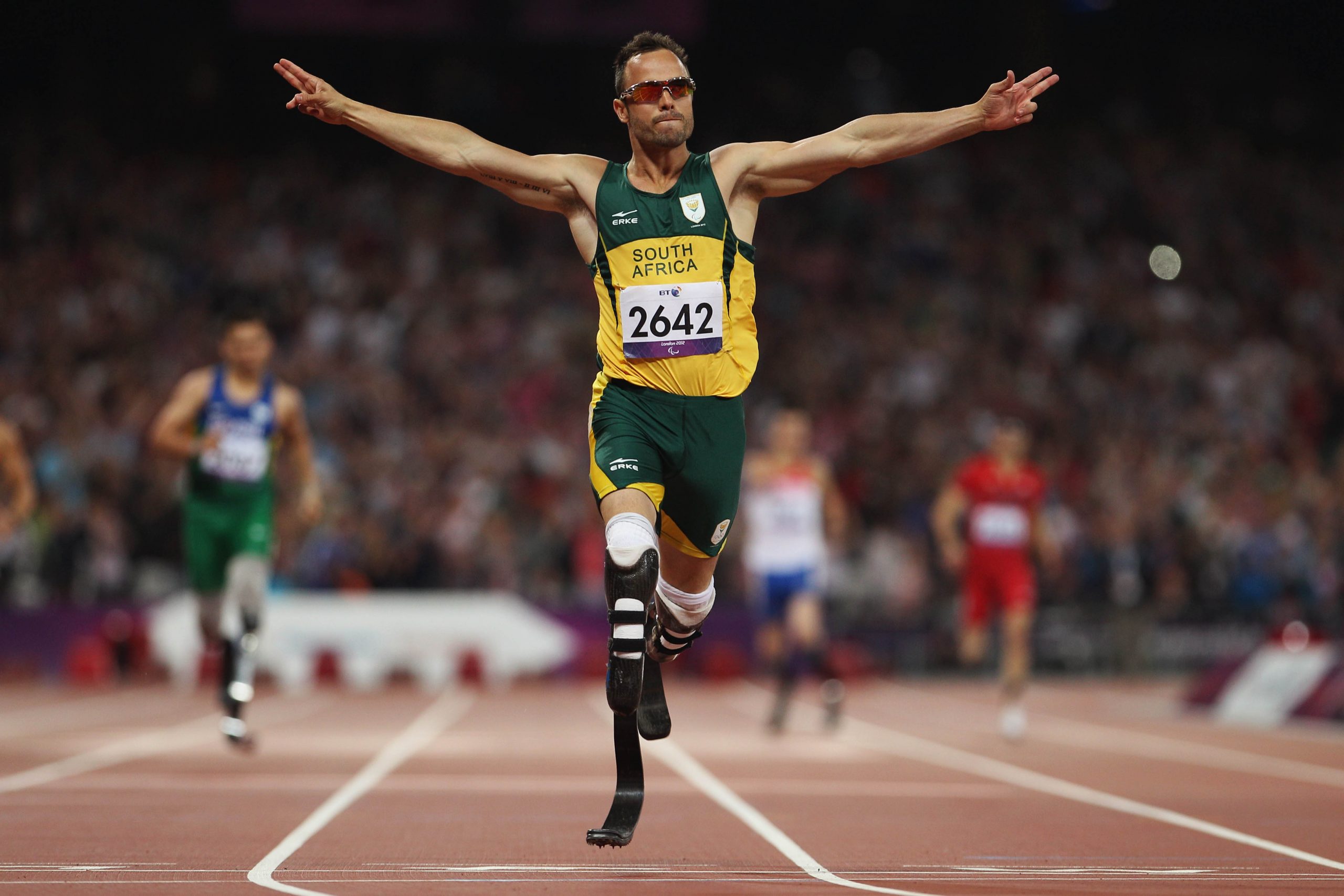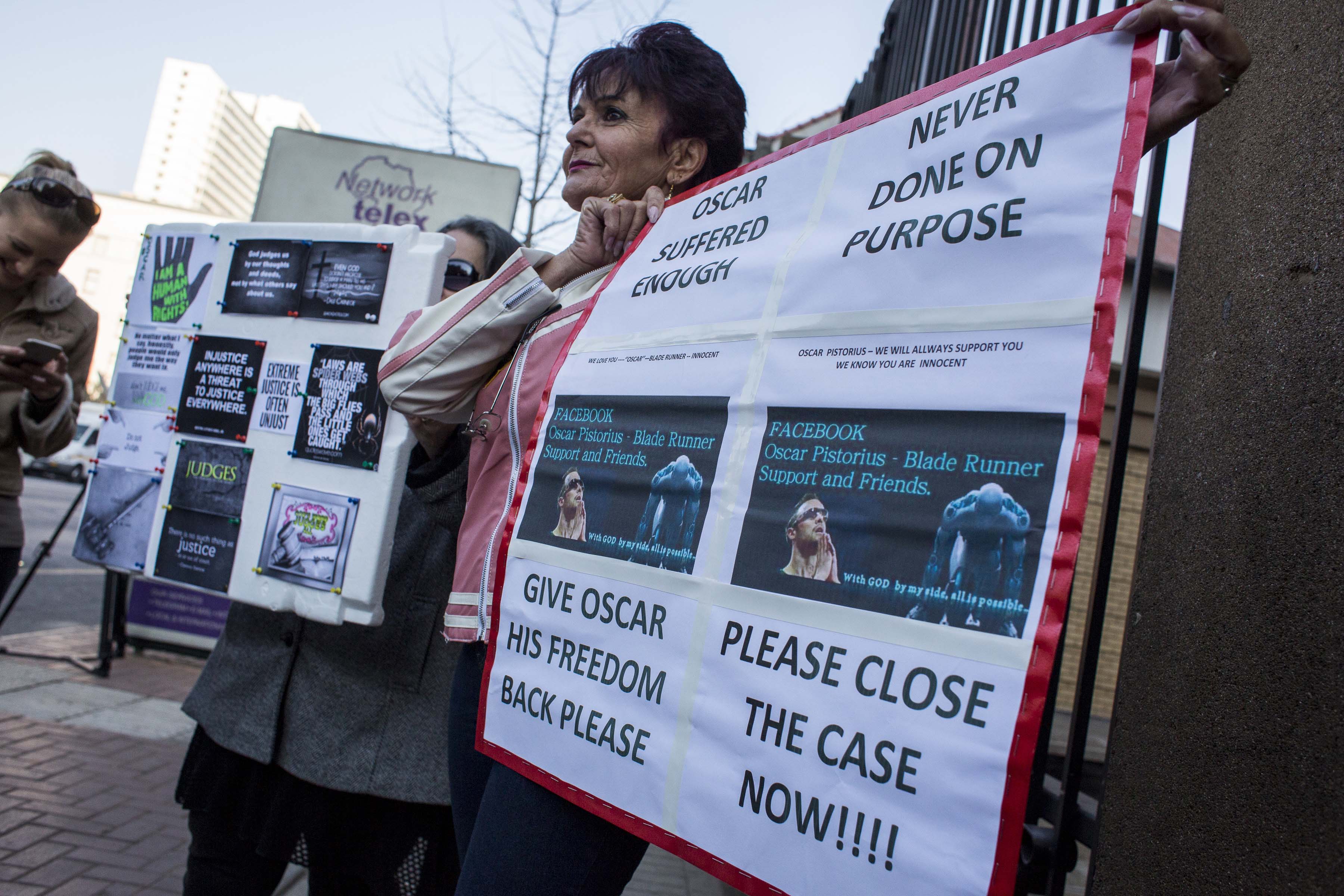Sport must fight gender-based violence
Clubs and sporting bodies have to do a better job when it comes to holding players to account for violence against women – because the law seldom does.
Author:
16 September 2019

“If this city doesn’t like it, I move us to another city. Bruno deserves this chance,” said Rone Moraes da Costa, president of Brazilian football club Boa Esporte. Da Costa was responding to criticism over signing Bruno Fernandes de Souza, who was found guilty of orchestrating the kidnapping, torture and murder of Eliza Samudio, the mother of his child. Samudio was disemboweled and her body parts were fed to dogs.
Bruno confessed to the crime and was sentenced to 22 years in prison. But six years later, he was released after the courts failed to rule on his appeal for several years. Upon his release, a number of clubs were after his signature. Boa Esporte controversially signed the goalkeeper despite heavy criticism and three sponsors withdrawing their financial backing.
In the five matches he played before his rearrest, chants of “We are Bruno” reverberated through the stadiums in which he played. A number of the club’s supporters were not bothered by what he had done. In fact, they were happy a goalkeeper who was close to representing the Brazilian national team, a cult figure at Flamengo – one of Brazil’s most successful clubs – was now playing for their team.
In Italy last year, Juventus put out a tone deaf statement in support of the five-time winner of the Ballon d’Or, Cristiano Ronaldo, who was accused of rape. The Italian giants, who were relegated to Serie B in 2006 for match fixing, praised Ronaldo for showing “great professionalism and dedication” and went on to say that the rape allegations (which they described as “events allegedly dating back to almost 10 years ago”) “do not change this opinion, which is shared by anyone who has come into contact with this great champion”.
In short, because Ronaldo is so good – regarded by many as the greatest of all time – there is no way he could have raped Kathryn Mayorga with whom he reached a financial settlement a year after the incident. This is essentially what Juventus was saying by highlighting the Portugese man’s exploits on the field.

Team of harassers
In Egypt, during the Africa Cup of Nations (Afcon) earlier this year, Amr Warda was kicked out of the Pharaohs’ camp after it came out that he was sexually harassing women online. A minor and two wives of his former teammates in Portugal also alleged that the Egyptian harassed them before an avalanche of women told their own stories this year, exposing the 25-year-old’s predatory pattern.
But the Egyptian Football Association (EFA) went back on their suspension, recalling Warda to the team – allegedly at the behest of senior players including Mohamed Salah and captain Ahmed Elmohamady, who put up the double deuces sign in “honour” of Warda, who wore jersey No 22, after scoring against the Democratic Republic of Congo.
When Warda was brought on against Bafana Bafana, there were mixed feelings in the stands. Some fans chanted and others whistled in disapproval. Salah and Elmohamady were wildly celebrated when they scored against Uganda. Some fans branded the Pharaohs the “team of harassers” in social media campaigns to voice their displeasure over the EFA’s decision.
Salah took to Twitter to defend the team’s support of Warda. “Women must be treated with the utmost respect. ‘No’ means ‘no’. Those things are and must remain sacred. I also believe that many who make mistakes can change for the better and shouldn’t be sent straight to the guillotine, which is the easiest way out,” the Egyptian tweeted.
“We need to believe in second chances. … We need to guide and educate. Shunning is not the answer,” he continued. This is the same man who told Time magazine that Egypt and the rest of the Muslim world needs to “change the way we treat women in our culture”.
Related article:
In South Africa, for some time, the music of a rapist used to be the last thing football fans heard before the referee blew the whistle to start domestic football matches. Without any irony, or shame, one DJ played Brickz’ Tjovitjo before the start of the MTN8 in August 2019, in a time when women were allowed to enter the stadium for free in the tournament in celebration of Women’s Month. There was no protest or even acknowledgement of the ridiculous song selection. But it was not surprising.
One club did after all keep under wraps the news of one of their players being accused of sexual harassment when the matter was brought to them. These are just a few incidents where football has shown it doesn’t care about the abuse of women when their players are involved. They might put up flowery statements and emotive messages of how they are against femicide and gender-based violence, but when it comes to acting against one of their own, they look the other way and wax lyrical about how the player is such a “great professional”.
The gender-based violence problem in sports
This doesn’t happen only in football. It’s across the board in sport. The National Football League (NFL) in America has a domestic abuse problem but its harshest sentence was meted out to former quarterback Colin Kaepernick, who was blackballed for taking a knee in protest against racism and police brutality.
The Redskins senior vice president of player personnel Doug Williams said Reuben Foster’s arrest on a domestic violence charge was “small potatoes” when the franchise wanted to sign him after he was released by Kaepernick’s former team, the San Francisco 49ers, for the offence. Foster was signed by the Redskins days after his arrest for assaulting his ex-girlfriend.
In 2014, Jeffrey Taylor, then on the books of the National Basketball Association (NBA) franchise Charlotte Hornets, was arrested and charged with one count of domestic assault and malicious destruction of property. He was suspended for 24 games without pay by the NBA and received a one-year suspension by the Swedish national team. Other sporting bodies and national teams have imposed weak sanctions despite there being proof of abuse.
The All Blacks Rugby World Cup squad includes Sevu Reece who pleaded guilty to common assault but was discharged without conviction because the judge felt that a harsher sentence would have serious implications for his rugby career. That’s right: a judge protected an abuser because prison time would hurt his career. Court documents revealed that Reece verbally abused his partner, chased her down the street and dragged her to the ground. Despite this, coach Steve Hansen not only took him to Japan but also defended him.
Ending the impunity of sports stars
“[Domestic violence] is a big part of our society unfortunately,” Hansen told Radio Sport. “So rugby is going to have people within its community [who] are involved in this. And having been a policeman, I’ve seen plenty of it. And I know it’s not just restricted to males assaulting women, women assault males too. It’s not a gender thing. It’s a New Zealand problem.”
If Reece was not a rugby player, in a country where the sport is a religion, he would not have escaped with a slap on the wrist. But because of his status as an athlete, he got away with abusing his partner. The only setback in his career was that Irish side Connacht terminated his contract, but now he is on the books of the most successful rugby franchise in the southern hemisphere – the Crusaders. The Irish snub is not much of a setback when he could end the year as a world champion.
Sport needs to hold its athletes to account – because clearly the law will not. Elissa Ennis, who called emergency services to report Foster, said the operator did not believe her. When she was at the police station, members of the 49ers were also there to dismiss her complaint.
It made a huge statement when the NBA gave Taylor a 24-game ban. While other sports associations have fumbled over punishing players or have only been forced into tougher sanctions under public pressure, other organisations and clubs have chosen to ignore the matter altogether.
Related article:
Clubs are good at issuing statements denouncing gender-based violence and femicide, but when it comes to acting on players who have committed those crimes, they become nothing more than keyboard warriors. This gives the impression that athletes can get away with murder – figuratively and literally.
The National Rugby League (NRL) has a domestic abuse policy, and they also issue harsh sentences to athletes who abuse women. Ben Barba was kicked out of the sport this year after a video surfaced of him attacking his partner, Ainslie Currie.
“I’m not going to call for [a worldwide ban] but there’s no place for him [in Australia]. It’s time for Ben Barba to find a new vocation,” NRL chief executive Todd Greenberg told reporters. “Where we see violence against women we’ll act in the strongest terms.”
All the stakeholders must change their ways
It is not just the clubs and associations that must change, all stakeholders involved in sport need to relook at how they handle matters of gender-based violence. The media needs to do a better job in holding these athletes to account. There is a trend to separate the athlete from the abuser in how articles are written about them. In the wake of Oscar Pistorius killing his girlfriend, Reeva Steenkamp, a number of articles were titled, “The Oscar Pistorius I knew”.
The killer was humanised. He was transformed into a kind and friendly soul who wouldn’t hurt a fly, despite there being a track record of his violent, trigger-happy streak. When sports journalists shine more light on sporting accomplishments, it results in whitewashing criminal acts.
“I always turn to the sports pages first, which records people’s accomplishments. The front page has nothing but man’s failures,” said chief justice of the United States Earl Warren, who occupied the position from 1953 to 1969.
Sports brings joy to the world. But Warren’s words are also an indictment of sport’s journalism in how it doesn’t do a good job of holding athletes and sport leaders to account. Some of the people who bring joy to billions of sports lovers across the world also inflict pain on women. But because of their status, they don’t suffer any consequences. This needs to change if we are to win the fight against gender-based violence.
Studies done in Colombia, Costa Rica and England show there is a spike in distress calls from women reporting domestic violence when these countries participate in the Fifa World Cup. Those reports highlight an increased volume of calls if these teams win. As such, both athletes and sports fans perpetrate acts of gender-based violence. Clubs and sporting bodies must hold their athletes to account and issue harsher sentences. This would go some way towards ending the impunity with which athletes and men continue to abuse women.


